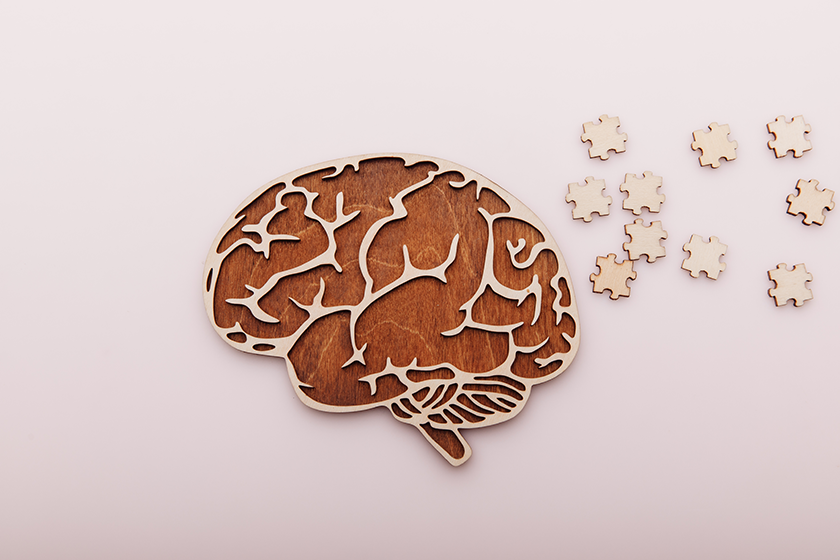Alzheimer’s disease, a progressive neurodegenerative disorder, affects millions globally, robbing them of memory and cognitive functions. Understanding the phases of Alzheimer’s disease is necessary for early diagnosis and effective management. This article explores the evolving stages and provides insights into the symptoms and challenges encountered in each phase.
Preclinical Alzheimer’s Disease
The preclinical stage of Alzheimer’s disease, often termed the silent phase, involves significant but undetected changes within the brain. It’s a period where amyloid plaques begin to accumulate and tau protein tangles start to form in the brain, initiating a slow degradation of nerve cells.
However, these biological changes do not yet manifest in noticeable cognitive symptoms. This makes the stage particularly challenging to diagnose without the use of specialized imaging technologies or cerebrospinal fluid analysis.
Individuals at this stage are not aware of the ongoing changes and do not exhibit any behavioral symptoms that suggest memory or cognitive issues. Research and clinical studies targeting this phase are necessary for understanding the early triggers of Alzheimer’s. This potentially leads to effective interventions that could delay or prevent the progression to symptomatic stages.
Mild Cognitive Impairment Due to Alzheimer’s Disease
Mild Cognitive Impairment (MCI) due to Alzheimer’s disease represents a noticeable decline in cognitive abilities that is not severe enough to interfere significantly with daily activities but which is more pronounced than typical age-related changes.
Individuals in this phase might experience frequent forgetfulness, such as misplacing everyday items or forgetting appointments or conversations. They might also struggle with tasks that require planning, organization or following instructions.
While MCI does not necessarily progress to Alzheimer’s disease in all cases, those with MCI due to Alzheimer’s-specific changes in the brain are at a higher risk of developing the disease. It’s during this phase that individuals and their families are more likely to notice that something is amiss. It can lead to further clinical evaluation and, possibly, an early diagnosis, which is vital for managing the disease’s progression.
Mild Alzheimer’s Disease
In the mild stage of Alzheimer’s disease, individuals begin to experience a greater degree of cognitive impairment, which starts to affect daily living. This phase often involves challenges in managing bills. It takes medications correctly or handling complex tasks at work. Communication problems become more noticeable, as those affected struggle with vocabulary.
Other common symptoms include misplacing personal belongings, getting lost on familiar routes and exhibiting poor judgment in social or safety settings. Changes in personality and behavior may also occur, such as becoming withdrawn or unusually irritable in social situations. At this stage, the support from family members becomes important as the need for supervision begins to increase to manage daily activities and guarantee safety.
Moderate to Severe Alzheimer’s Disease
As Alzheimer’s disease progresses from moderate to severe, cognitive decline becomes more profound, with significant impairments in memory, reasoning and basic bodily functions. In the moderate phase, individuals may lose track of where they are or even the current time or date and they may struggle to remember their personal history. Physical difficulties become more apparent, including problems with walking or keeping balance.
As the disease advances into the severe stage, individuals eventually lose the ability to communicate coherently and control motor functions. This requires assistance with all activities and events of daily living such as bathing, dressing and eating. This phase is often the most challenging for caregivers, as it requires constant care and supervision. The focus of care shifts primarily towards preserving dignity and comfort, managing symptoms and providing a safe and nurturing environment.
Late-Stage Alzheimer’s Disease
The final stage of Alzheimer’s is characterized by a near-total dependence on caregivers. At this point, cognitive skills have deteriorated significantly. This results in severe physical limitations that impact every aspect of daily life. Communication abilities diminish to minimal or non-existent levels and the risk of physical conditions such as skin infections, pneumonia and other illnesses increases due to decreased mobility and a weakened immune response.
In this phase, care strategies center on providing comfort and maintaining the best possible quality of life. The focus is on compassionate caregiving, with decisions often revolving around palliative care options that prioritize symptom management and emotional support. This late stage requires a highly supportive and sensitive approach to address the complex needs of the individual.
Understanding the phases of Alzheimer’s disease aids in planning for care, making lifestyle adjustments and setting realistic expectations for progression. Early recognition of symptoms can lead to interventions that may slow its advancement and enhance quality of life. As individuals progress through the stages of Alzheimer’s, transitioning to a Memory Care community can bring tailored support and improve living standards during their golden years.







